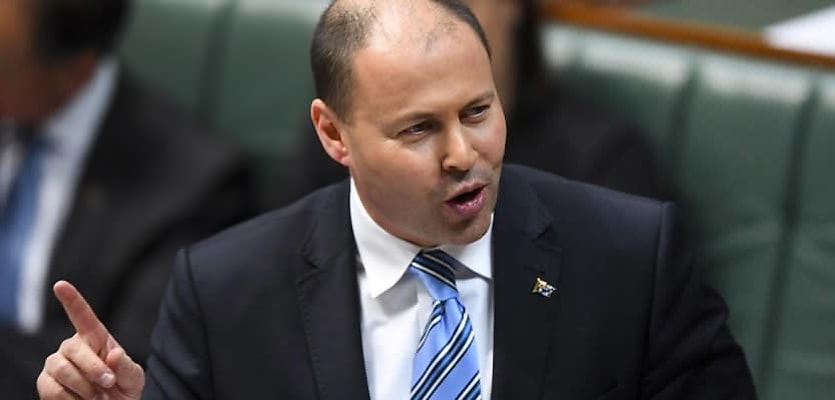The federal treasurer, Josh Frydenberg, today suggested the federal election puts the housing market and the professionals who service it at a critical crossroads.
One of the key recommendations of Kenneth Hayne’s royal commission was to abolish trail commissions for mortgage brokers, meaning a big hit to brokers’ income.
The Liberal Party was originally going to support this proposal for new loans, but has since softened its position and plans to commission a review in three years’ time.
The Labor Party’s position is that lenders instead pay brokers a standardised upfront commission, as a proportion of the loan amount.
A disruption to fees which disincentivises mortgage brokers from staying in the market would have a major impact on competition, meaning a misstep from either side of government could have a direct impact on consumers.
Mr Frydenberg fears a wrong move could drive business back to the banks.
“The reason is that mortgage brokers play an absolutely critical role in our economy and they help generate competition in that market and we don’t want to see mortgage brokers put out of business with, effectively, their business just migrating to the big banks,” Mr Frydenberg said in a town hall discussion yesterday.
Mr Frydenberg also blasted Labor’s plans to limit negative gearing to new properties and halve the CGT discount from 2020.
He said the proposals will categorically increase rents and make property prices plummet, particularly in cities like Sydney where home values are currently in free fall.
Modelling on the impact of these policies is mixed. Some, like SQM Research, point to market disruption for property investors.
“There is likely to be upward pressure [on rents] from 2021 due to the current slump in building approvals which will be aggravated by the loss of negative gearing,” the research house said.
“SQM Research believes market rents could accelerate rise between 7 per cent and 12 per cent over the period 2020 to 2022, assuming there is an interest rate cut. Brisbane and Perth are likely to record the largest rises in rents.”
Others, like research house CoreLogic, foresee a confidence wobble from investors should Labor’s proposals pass.
However, tax experts like the Tax Institute’s senior tax counsel, Professor Robert Deutsch, believe the proposals won’t cause a catastrophic disruption. This is in part due to the fact that the proposals apply to all manner of investments, not just property.
This morning, both Mr Frydenberg and Assistant Minister for Treasury and Finance Zed Seselja referred to Labor’s package of proposals as a housing tax. Opposition Leader Bill Shorten hit back at this terminology more broadly in an interview with the national broadcaster this week.
“What we’re saying is on January 1 in 2020, new purchases of existing housing won’t be able to claim a government subsidy,” Mr Shorten said.
“If I’m not giving you a subsidy for you making a loss on an investment property, that ain’t a new tax. It just means you’re not getting a subsidy.”







You are not authorised to post comments.
Comments will undergo moderation before they get published.